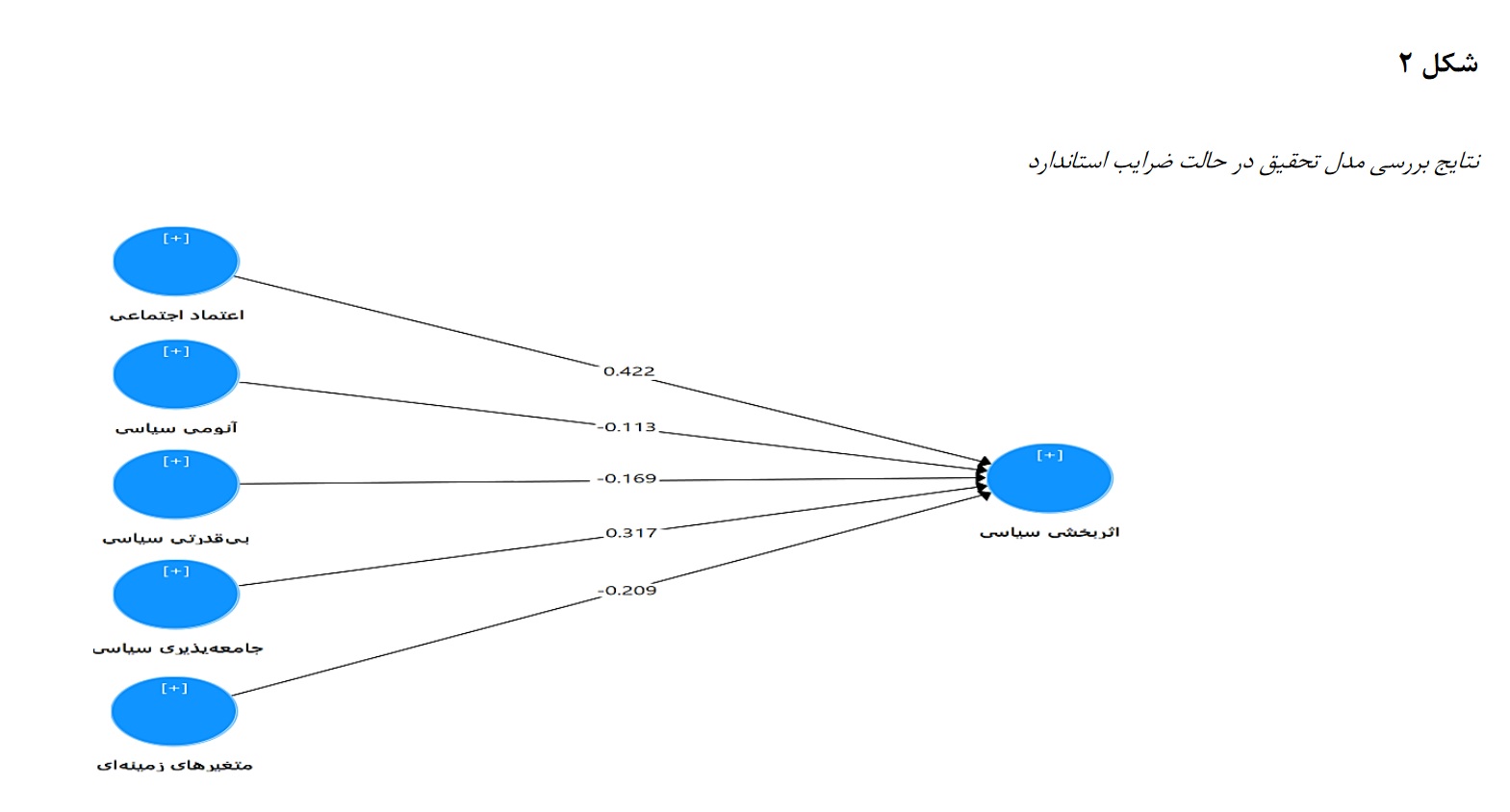Explaining Social Factors Influencing the Sense of Political Efficacy Based on the Campbell and Bandura Model (Case Study: Adult Citizens of Tehran)
Keywords:
Political anomie, Sense of efficacy, Sense of political powerlessness, Adult citizens of Tehran, Political participationAbstract
This article addresses the explanation of social factors influencing the sense of political efficacy. The study utilizes Campbell and Bandura's models, focusing on variables such as social trust, political anomie, political powerlessness, political socialization, and contextual variables such as education, social class, and economic status as influencing factors on the sense of political efficacy. The statistical population under study comprises adult citizens of Tehran. Cochran's method was used to determine the sample size, resulting in 504 individuals being selected as the statistical sample. A multi-stage cluster sampling method was employed to select the sample. The primary data collection tool was a researcher-made questionnaire, with validity confirmed by experts and reliability determined through Cronbach's alpha test (α = 0.846). Data were analyzed using structural equation modeling and the partial least squares approach with SPSS 27 and Smart PLS 3 software. The findings from this study indicate that all studied variables had a significant relationship with the political efficacy of adult citizens of Tehran. Furthermore, the results of the standard coefficients showed that variables such as political anomie, political powerlessness, and contextual variables negatively affect political efficacy, whereas social trust and political socialization positively influence political efficacy.
Downloads








